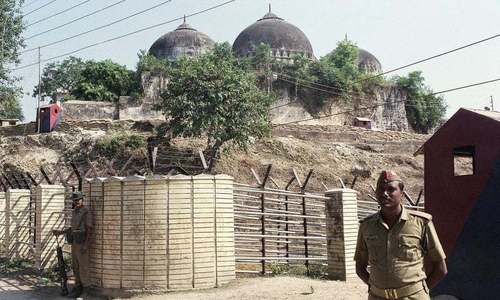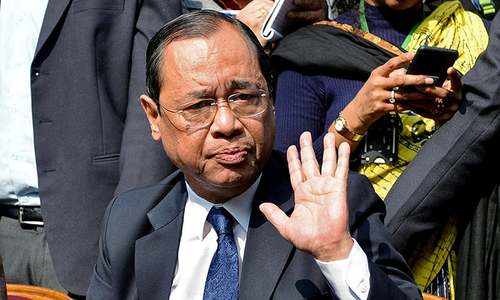Justice Sharad Arvind Bobde was sworn in as India’s 47th Chief Justice by President Ram Nath Kovind on Monday, November 18.
In accordance with convention, the incumbent CJI Ranjan Gogoi, who retires on November 17, had recommended Justice Bobde — who is next in seniority — as his successor, in a letter to Ministry of Law and Justice. The president signed the warrant for his appointment on October 29.
Justice Bobde takes up the office soon after being part of the bench that finally ended the Ayodhya title dispute. He will continue as the 47th CJI till April 23, 2021, when he retires.
Career before elevation to the Supreme Court
Born on April 24, 1956 in Nagpur, Maharashtra into a family of lawyers (his grandfather, father and brother are all distinguished advocates), Justice Bobde secured his BA and LLB Degrees from Nagpur University, after which he enrolled with the Bar Council of Maharashtra in 1978.
Justice SA Bobde practised at the Nagpur Bench of Bombay High Court with appearances before the principal seat in Bombay and before the Supreme Court of India, and became senior advocate in 1998.
On March 29, 2000, he was appointed as a judge of the Bombay High Court. After 12 years on the bench in his home state, he became Chief Justice of the Madhya Pradesh High Court on October 16, 2012.
Tenure as a Supreme Court judge
On April 12, 2013, Justice Bobde was elevated as a judge of the Supreme Court of India.
The first case which saw him enter the limelight was the original Puttaswamy case in the apex court. Justice KS Puttaswamy, a retired judge of the Karnataka High Court, had filed a writ petition in the Supreme Court challenging the attempts by the Centre (ruled by the UPA at the time) to make Aadhaar mandatory for various schemes.
At the time that there was no legislative basis for Aadhaar, which was purely run on executive orders — Justice Puttaswamy argued this whole programme was unconstitutional.
In 2015, they reiterated their order after being informed government authorities were once again making Aadhaar mandatory, and once again put a stay on Aadhaar being made mandatory. As the government was insisting that the right to privacy — crucial to the case — was not a fundamental right, the two judges referred this question for hearing by a larger bench.
This led to the historic judgment of a nine-judge bench of the Supreme Court in 2017 which unanimously affirmed that privacy was a fundamental right. Justice Bobde wrote one of the opinions in the judgment, in which he recognised that privacy was a natural right, which existed in several other fundamental rights as well, including the right to free speech and the right to life and liberty.
He indicated that he believed Aadhaar was a reasonable restriction on the right to privacy — though he was not part of the bench which eventually heard the constitutional challenge to Aadhaar itself in 2018.
Read : Who Are The Five SC Judges Who Delivered the Ayodhya Verdict?
In the meanwhile, Justice Bobde was also part of a bench which in 2016 banned the sale and stockpiling of firecrackers in Delhi because of the environmental impact.
In 2017, he also had to deal with two requests by pregnant women to abort their foetuses beyond the 24-week mark set out in the Medical Termination of Pregnancy Act. In one case, he allowed the abortion to take place, as the child’s skull and brain had not formed at the right time, meaning a risk to the child’s survival. In the other, he refused the request to abort the foetus which had been diagnosed with Down’s Syndrome.
He was also part of a seven-judge bench which held that re-promulgation of ordinances, a tactic widely used by the NDA government after 2014 and by several state governments to avoid difficulties in getting laws passed by their legislatures, was a fraud on the Constitution.
Prominence in recent months
Perhaps the most notable moments of Justice Bobde’s long time at the Supreme Court have come in 2019. In January, he was included by CJI Gogoi as one of the five judges who would hear the Ayodhya title dispute, and finally settle a long-running legal saga which had massive socio-political implications.
In March, while hearing the case, it was Justice Bobde who suggested that the parties give mediation a try. The apex court then set up a mediation panel comprised of retired Supreme Court judge FM Kalifulla, Sri Sri Ravi Shankar and mediation specialist Sriram Panchu to try and help the Hindu and Muslim parties arrive at some sort of settlement.
While the mediation attempts were not ultimately successful, they were in keeping with Justice Bobde’s philosophy of reducing conflict in cases and seeking to find an amicable conclusion if possible. He reportedly played a major role, for instance, in patching up the differences between former CJI Dipak Misra and the four senior judges who held a press conference in January 2018 criticising the way in which the Supreme Court was being administered.
Read : Justice Bobde: Peacekeeper, sharp observer on matters of faith
While the mediation attempts in the Ayodhya case were going on, the Supreme Court was rocked in April by the allegations of sexual harassment against CJI Gogoi by a court staffer. After initial missteps including CJI Gogoi’s conduct of a hearing by a special bench to defend himself, an inquiry panel under the Supreme Court’s in-house legal procedure was set up to look into the woman’s allegations.
Justice Bobde headed the panel, which also comprised of Justices Indira Banerjee and Indu Malhotra. The panel generated controversy by not allowing the woman to have a lawyer present (admittedly, the In-House Procedure explicitly says this doesn’t have to be allowed) and by not giving her copies of her testimony as recorded at the end of each day (which is normal in most cases).
When the Ayodhya dispute eventually returned to the Supreme Court, Justice Bobde asked searching questions from the lawyers of the parties on the arguments of faith that they tried to raise in court.
The judgment on November 9, which granted the land to the Hindu parties, eventually sought to distinguish between faith and evidence, and emphasised the importance of the latter in deciding the case.
Read : SC Panel’s Clean Chit to CJI Gogoi Sadly Comes as No Surprise
What cases will Justice Bobde need to deal with as CJI?
As Master of the Roster, CJI Bobde will be responsible for allocating benches to hear cases at the Supreme Court.
Some of the important cases where he will need to do this in the months to come include:
The Sabarimala review petitions. One of CJI Gogoi’s final judgments deferred taking a decision about the review petitions, holding that a larger bench (of at least seven judges) will need to look at the issues regarding essential religious practices that are relevant to this case as well as petitions in the Supreme Court regarding entry of Muslim women into mosques, and female genital mutilation in the Dawoodi Bohra community. Chief Justice Bobde will need to decide which judges will be on this bench, and when it needs to be taken up.
The challenge to electoral bonds. CJI Gogoi passed an interim order in this case asking for information on this to be submitted in a sealed cover. The main challenge was supposed to resume in July this year, but was never assigned by him.
He will also need to keep track of the Kashmir cases in the apex court, currently being heard by benches headed by Justice NV Ramana (who is scheduled to succeed him as CJI), and assign cases arising out of the detention of people in Jammu and Kashmir.
This piece was originally published on The Quint and has been reproduced with permission.
































